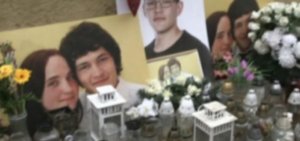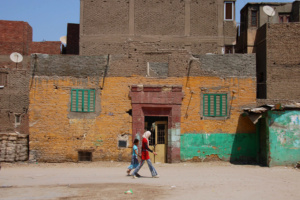|
 | press freedom = democracy Each of us has it - our own opinion. We like to express it - and many of us can. Even better, if we have the right information to base our opinions on. But what about countries in which people who provide us with that information - journalists, citizen reporters, bloggers, vloggers, activists ... are prevented from informing us independently and with facts about what appears to be obvious or is in hiding? On May 3, the UNESCO addresses a cornerstone of democracy with the international World Press Freedom Day. This day sets to "acts as a reminder to governments of the need to respect their commitment to press freedom and is also a day of reflection among media professionals about issues of press freedom and professional ethics." This day is also important to remember the journalists who have lost their lives to the cause of information and independent reporting. Welcome back to FairPlanet's weekly roundup. Today, more than ever, we want to remind you that the freedom of the press is a special right of our freedom of expression. Still not for all of us. So never stop to Read. Debate: Engage. |  |
|
|
|
 | In today's media landscape, where news and information are taken out of context, the existence of the independent and free press has never been more crucial. These times of hyperconnectivity and world leaders spreading blatant lies and misinformation, call for support of independent media platforms and journalists, who must be able to create and publish without fear and in complete freedom. “Free and independent media underpin any vibrant democracy.” (Oscar Auliq-Ice) |  |
|
 | | FairPlanet amid the lockdown |
|  |
|
 | what our journalists say |  |
|
 | Bob Koigi "With increased restrictions on movements and lockdowns, independent journalists like me have found it increasingly hard to travel and connect with sources. Thanks to technology and media networks I belong to like WhatsApp groups, I have managed to get in touch with most of my sources, especially those in areas I can no longer travel to. The local networks I have built over time have also been of great help, especially in pointing me to grassroots COVID-19 stories and sources to talk to via phone. Communication platforms have necessitated me to easily and conveniently reach out to sources whether in government or in private business." |  |
|
 | Katarina Panić "The solidarity, humanity and voluntarism among ordinary people are the most positive aspects coming out during the pandemic. On the other side, poor countries with ill-equipped health systems are simply forced to deal with the pandemic through highly restrictive measures. It was expected that the state of emergency could be misused to some extent and it happened. For instance, in my hometown with under 100,000 inhabitants, there were more people punished because of online comments than those tested positive of the virus." |  |
|
 | Jose Kalathil "After some journalists were harassed by security personnel while on duty during the lockdown period, the Indian govt issued a statement that they should not be harassed by police. For most of the Independent journalists, television channels, webinars, phone calls or social media like WhatsApp and messages are the news sources. Hardly any news other than related to Covid-19 is carried in newspapers. All newspapers have devoted more pages for news on the pandemic." |  |
|
 | Kwabena Adu Koranteng "As an independent Journalist going out to get a story is currently very difficult. I have restricted myself to the office since I am not sure about the status of the person I will be interviewing. I have adopted the strategy of doing interviews on phone and later go to the spots needed to take my photographs in my car. Social distancing is also preventing lots of people from speaking to the press. In Ghana, the press enjoys much freedom so we have the liberty to do a lot but Covid-19 has curtailed this freedom." |  |
|
 | Fiona Hammond "For me, the fierce battle between grasping the amount of information emanating daily and trying to make sense of the complicated uncertainties that come with the period has been a herculean task. Human rights violations have also been on the rise, as some overzealous security agents in a quest to enforce the lockdown order have clashed with civilians who are trying to understand the whole sit at home order. With increasing surveillance off and online, freedom of movement and expression has almost become moribund." |  |
|
 | Shadi Khan Saif "Reporting from war zones has always been challenging to say the least, and it gets worst when the security forces have additional power under a pandemic to restrict the movement and activities of journalists. This situation provides additional excuses to impose additional curbs on press freedom under the pretext of prevailing circumstances, hence eroding and undermining the role and authority of the press as a fourth neutral pillar of the state monitoring of the situation. Personally speaking, I have been using my right as a journalist to free movement during the quarantine restrictions, but that is often confused by the security personnel on duty as a luxury rather than me taking a risk just like them to perform my duty." |  |
|
 | Cyril Zenda "Security forces enforcing the COVID-19 lockdown in Zimbabwe have been especially hard on independent journalists, who have not only been arrested but also assaulted while carrying out their duties. With the security agents being accused of gross violation of human rights and demanding bribes, authorities have every reason to dislike the media and the fact that most independent journalists usually go around alone, makes them especially vulnerable. The plight of the journalists has not been helped by the failure of the government to renew expired journalists’ accreditation cards, resulting in them being forced to continue using 2019 cards. With public transport – which most of these journalists use – barred from the roads, moving from one place to another has turned out to be even harder. In Zimbabwe help has been rendered by the Media Institute for South Africa (MISA Zimbabwe) and the Zimbabwe Lawyers for Human Rights, with MISA-Zimbabwe even challenging in the High Court, a strange police ban on all journalists, except for those working for broadcasting and online platforms." |  |
|
 | Ndubuaku Kanayo "For me, the fierce battle between grasping the amount of information emanating daily and trying to make sense of the complicated uncertainties that come with the period has been a herculean task. Human rights violations have also been on the rise, as some overzealous security agents in a quest to enforce the lockdown order have clashed with civilians who are trying to understand the whole sit at home order. With increasing surveillance off and online, freedom of movement and expression has almost become moribund." |  |
|
 | Igor Serebryany "For me, the lockdown changed the environment very little (regarding working conditions) since I've been teleworking for many years yet." |  |
|
 | Peadar O'Cearnaigh "The main difficulty as an independent journalist is the isolation and therefore a certain level of loneliness. The possibility of going out and meeting people - pressing the flesh - isn't there so it can be challenging to build relationships during this time. That being said the upside is that everybody else is in the same boat, so it's easier to get hold of people and people are more eager to speak to you and give you their time and story. But I hope it ends soon as endless video calls are not good for the soul. I would love to know how other journalists are doing and to stay in touch with them also. Solidarity all!" |  |
|
|
 |  | Slovakia’s murdered journalist case continues by Magdalena Rojo The murder of Ján Kuciak and his fiancée Martina Kušnírová is a test for whether Slovakia is still a democratic country with a working justice system. |  |  | Egypt’s hotline to fight fake news and censor journalists by Bob Koigi The Office of Public Prosecutions in defending the decree argued that the technology advancement had birthed a proliferation of numerous communication channels that had become wild and unregulated. |  |  | Help our democracies survive COVID-19 by Yair Oded Democracy Now! is an independent news platform featuring a diversity of voices and reporting on cases of injustice. and abuse of power. |
|  |
|